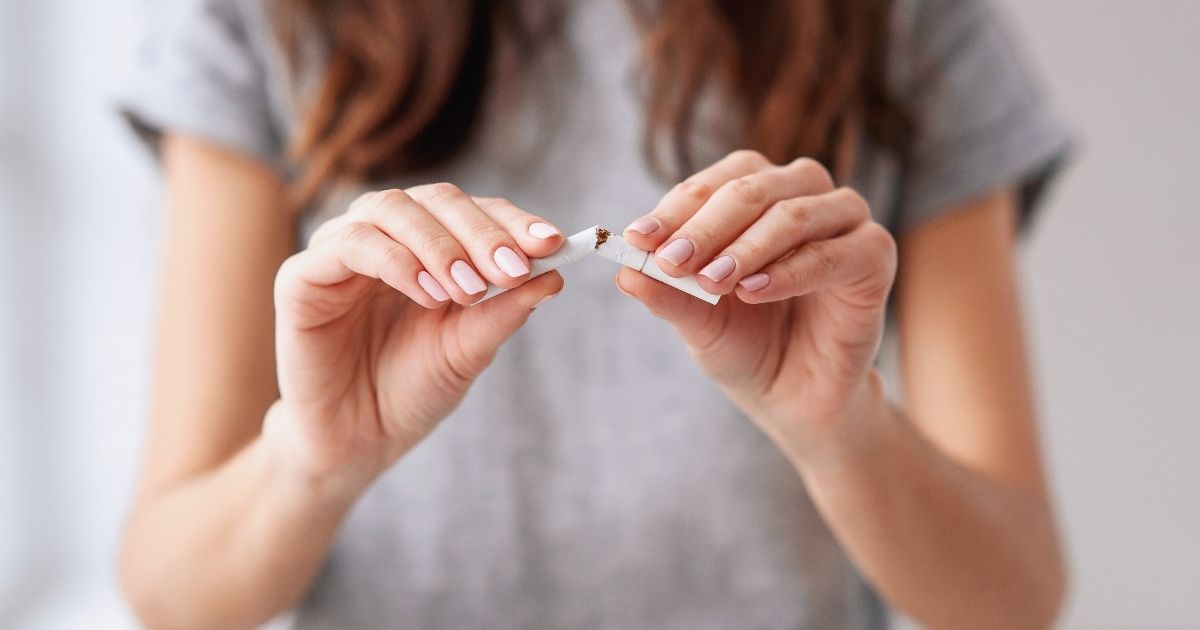Did you know? Smoking and vaping continue to cause about 480,000 deaths every year, with vapes, or e-cigarettes, being the most used tobacco product among U.S. youth. In honor of November being Lung Cancer Awareness Month and the American Cancer Society’s Great American Smokeout quitting event, we asked an expert about the health benefits of quitting smoking and helpful tips and resources.
According to David Rzeszutko, MD, MBA, Vice President of Medical and Clinical Operations at Priority Health, one of the biggest misconceptions people still have about lung cancer is that only people who smoke can get it.
“While smoking is a leading cause, anyone can develop lung cancer—even people who have never smoked,” Dr. Rzeszutko said. “Another myth is that lung cancer is always fatal. Treatments have improved, and many people live longer, fuller lives with early detection and care. It’s also important to know that lung cancer isn’t just a disease for older adults—it can affect younger people, too.”
It’s important to note that there are several risk factors beyond simply smoking and vaping.
“Exposure to radon gas—an invisible, odorless gas found in some homes—is a significant risk. Breathing in secondhand smoke, air pollution or chemicals like asbestos at work can also increase your risk,” Dr. Rzeszutko advised. “Family history plays a role, too, so people with close relatives who have had lung cancer should talk to their doctor about their own risk.”
The Great American Smokeout, headed by the American Cancer Society, takes place on the third Thursday of November each year (November 20) and is a day aimed at empowering those who want to quit smoking to take the first (and often difficult) step toward a healthier, smoke-free life.
“The Great American Smokeout is powerful because it brings people together around a common goal—quitting smoking,” Dr. Rzeszutko said. “There’s something motivating about knowing you’re not alone and that thousands of others are making the same decision on the same day … Joining a larger movement like the Smokeout adds a sense of community and accountability. It helps to know you’re part of something bigger, and that support and encouragement are available from others who understand what you’re going through. The campaign also raises awareness, provides helpful resources and sparks important conversations about health and tobacco use.”
If you’re planning to take part in the Smokeout this year, Dr. Rzeszutko recommends starting by telling your friends and family about your plan, as they can be a great source of encouragement.
“Remove tobacco products and reminders from your home, car and workplace; talk to your doctor about options for support, like nicotine replacement therapy or counseling; and remember, planning for challenges and having strategies ready can make a big difference on your quit day,” he explained.
Benefits from quitting smoking and vaping abound and start almost immediately.
“Within 20 minutes, your heart rate and blood pressure begin to drop,” Dr. Rzeszutko shared. “After a few days, your sense of taste and smell improve. Over weeks and months, lung function gets better and coughing decreases. Long-term, quitting lowers your risk for heart disease, cancer and many other serious health problems.”
If you’ve tried to quit in the past and have struggled, you should know that there are more effective treatments and methods for quitting than ever before.
“Nicotine replacement therapies—like patches, gum or lozenges—can reduce cravings,” Dr. Rzeszutko said, adding that prescription medications may also help support your journey. “Participating in counseling, support groups and using telephone quit lines can double your chances of success. If you’ve tried before, remember: it often takes several attempts to reach your goal. Each effort gets you one step closer. Past setbacks do not determine your future success—keep going!”
And while withdrawal can be tough, it can also be manageable.
“Stay active—go for a walk, chew gum or keep your hands busy,” Dr. Rzeszutko suggested. “Lean on your support system and let others know when you’re struggling. Try deep breathing or relaxation exercises when cravings hit. Cravings usually pass in a few minutes—distracting yourself can really help.”
If you’re considering whether or not you should quit, just remember: Don’t give up—it’s a choice that could change your life.
“Quitting smoking or vaping is one of the best things you can do for your health and your future,” Dr. Rzeszutko said. “Whether you’re trying for the first time or the 10th, take it one day at a time. Celebrate small victories and remember—every day without tobacco is a win … reach out for support, use available resources and be kind to yourself. You’re not alone—many people have been where you are and have succeeded. You can, too.”
Written by Sarah Suydam, Managing Editor for West Michigan Woman.




